Breast Augmentation in Tunisia
Search and Compare the Best Clinics and Doctors at the Lowest Prices for Breast Augmentation in Tunisia
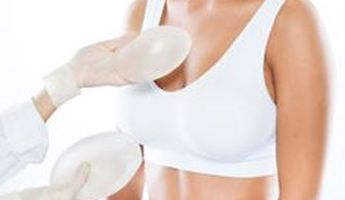
Find the best clinics for Breast Augmentation in Tunisia
With Medijump you can browse 8 facilities offering Breast Augmentation procedures in Tunisia. The cheapest price available is $1,815 in Monastir. And for the cheapest price globally, prices start from $208 in Hungary.
Breast Augmentation in Monastir
Price: $ 1,815
Breast Augmentation in Sousse
Price: $ 1,906
Hungary offers the best prices Worldwide
Price: $ 208
From 4 verified reviews
Samir Derradji, 18 March 2018
Hello I follow sick dalger Algeria I ask you a preforma for an opairation on the colon .Thank you
From 11 verified reviews
Craig Mills, 30 July 2019
Excellent private health care looked after my soon after he drowned in sahara beach hotel this month would definatly recommend being cared for there staff were amazing
From 37 verified reviews
Saoussen Saidani, 13 June 2020
My 12 year old daughter Lina has had surgery Pancreas tumorHeavy Operation which went very wellI thank all the staff of the Pasteur clinic for their hospitality and their hygiene ...I thank the doctors who attended the operation and in particular the surgeonAYADI Sofiene who accompanied us from the start for his professionalism as well as DR Walid Miraoui. The discovery of this tumor is done in a very short time a week to manage allThe support of Surgeon Ayadi Sofiene was really perfect as a parent we were reassured and above all in confidence.And especially I thank them for the moral support of My Daughter Lina who kept the smile until the end and who It is found in Total confidenceThank you so much for saving our childMr er Mrs Saidani
From 11 verified reviews
Toumi Mondher, 02 April 2019
The Department of Extraction and Billing at the Center of Imaging and Radiology, two patients, treated me with a reputation as a Tunisian clinic, and I bear the responsibility to speak this
From 9 verified reviews
Ibtyhel Ben bassine, 19 April 2019
I slept my little girl on Thursday, March 8, 2018, was at Top, my gygy, the nurses .... they put me in a calm and clean environment with a service of excellence .. thank you prts and especially pr Dr. hichem
Clinique Taoufik, located in Boulevard Mohamed Bouazizi, Tunis, Tunisia offers patients Breast Augmentation procedures among its total of 225 available procedures, across 24 different specialties. Currently, there's no pricing information for Breast Augmentation procedures at Clinique Taoufik, as all prices are available on request only, whilst the national average price is approximately $2,321. There are many specialists available at the Clinic, with 10 in total, and they are accredited by ISO 9001:2008
Cosmeticare Travel, located in Boulevard Mohamed Bouazizi, Tunis, Tunisia offers patients Breast Augmentation procedures among its total of 34 available procedures, across 4 different specialties. Currently, there's no pricing information for Breast Augmentation procedures at Cosmeticare Travel, as all prices are available on request only, whilst the national average price is approximately $2,321. There is currently a lack of information available on the specialists practicing at the Hospital, and they are not accredited by any recognized accreditations institutes
Clinic Apollon, located in Boulevard Mohamed Bouazizi, Tunis, Tunisia offers patients Breast Augmentation procedures among its total of 90 available procedures, across 1 different specialties. Currently, there's no pricing information for Breast Augmentation procedures at Clinic Apollon, as all prices are available on request only, whilst the national average price is approximately $2,321. All procedures and treatments are undertaken by just a small team of specialists, with 2 in total at the Clinic, and they are not accredited by any recognized accreditations institutes
- Home
- Tunisia
Compare Before & After Photos of _procedure_photos.phpBreast Augmentation
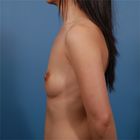

Full-side view
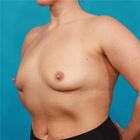
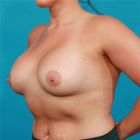
Half-side view
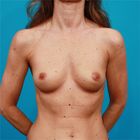
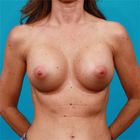
Front view
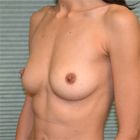
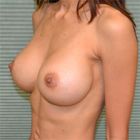
Half-side view
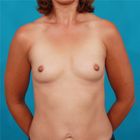
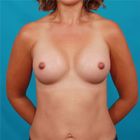
Front view
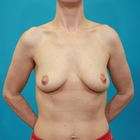
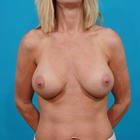
Front view
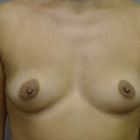
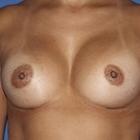
Front view
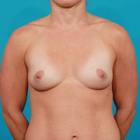
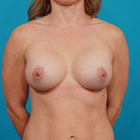
Front view
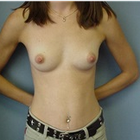
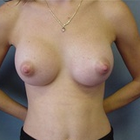
Front view
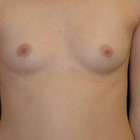
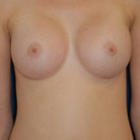
Front view
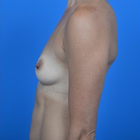
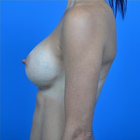
Full-side view
WHY US?
At Medijump, we're making medical easy. You can search, compare, discuss, and book your medical all in one place. We open the door to the best medical providers worldwide, saving you time and energy along the way, and it's all for FREE, no hidden fees, and no price markups guaranteed. So what are you waiting for?

Free

Best Price

Widest Selection

Risk-Free
What you need to know about Breast Augmentation in Tunisia

Breast augmentation, also known as a Boob Job or Breast Enlargement, is a surgical procedure aimed at increasing breast size, enhancing shape, or improving symmetry. In Tunisia, this procedure is carried out by board-certified plastic surgeons in accredited medical facilities, ensuring both safety and quality.
What is the cost of Breast Augmentation in Tunisia?
Prices in Tunisia are competitive, often offering savings without compromising on quality, especially when compared to costs in the US or Europe. However, factors such as surgeon’s fees, facility costs, and the type of implants affect the total cost.
What does a Breast Augmentation Procedure Involve?
The surgery involves placing breast implants under the breast tissue or chest muscles. Choices between saline or silicone implants can be made based on the desired feel and appearance. This is something your surgeon will discuss with you prior to even travelling.
How Long Should I Stay in Tunisia for a Breast Augmentation Procedure?
The length of stay in Tunisia for a Breast Augmentation is subject to various factors, such as your overall health, the specific nature of the procedure, and your individual recovery rate. Generally, Breast Augmentation surgery is an outpatient process, meaning you may be able to return home on the same day. However, a stay of up to two days might be necessary if your procedure is more intricate.
Although the hospital stay is relatively brief, it is advisable to remain in Tunisia for at least one-week post-procedure. This timeframe allows for initial recovery and a follow-up appointment with the surgeon. Moreover, in the event of any complications, prompt medical assistance will be accessible. Thorough knowledge of the recovery process and its duration is crucial for proper preparation and managing stress during treatment.
What's the Recovery Time for Breast Augmentation Procedures in Tunisia?
Post-surgery, a recovery period of one to two weeks is generally required, with follow-up visits to the surgeon. It's crucial to follow all post-op instructions for optimal healing.
Experiencing swelling and discomfort following the operation is normal, both of which should gradually alleviate with time. You will be required to wear a compression garment, take prescribed medications, and maintain a healthy lifestyle for an effective recovery.
What sort of Aftercare is Required for Breast Augmentation Procedures in Tunisia?
Post-operative care is critical for the success of a Breast Augmentation. The initial recovery phase usually includes prescribed medications to alleviate pain and avert infection. Individuals can normally resume everyday activities within a few weeks, depending on their healing pace and bodily responses. However, it is advisable to refrain from vigorous activities for a minimum of six weeks post-procedure.
What's the Success Rate of Breast Augmentation Procedures in Tunisia?
In Tunisia, Breast Augmentation boasts a relatively high success rate, which contributes to its immense popularity among individuals seeking improvements in their physical appearance. Numerous patients have reported satisfaction and enhanced confidence after undergoing the procedure, making it a widely favoured cosmetic surgery.
Are there Alternatives to Breast Augmentation Procedures in Tunisia?
In Tunisia, there are several alternatives to the Breast Augmentation. If you're considering breast augmentation strictly for cosmetic reasons and prefer non-surgical options, various suitable methods are available. Alternatives include fat grafting, hormonal therapy, and natural remedies. Fat grafting, also known as fat transfer, involves removing fat from different body parts and injecting it into your breasts. This approach is regarded as safer because it employs the body's tissue, minimizing complications.
What Should You Expect Before and After the Procedure?
Prior to the procedure, your surgeon will discuss your expectations and the anticipated outcomes of your Breast Augmentation. The preoperative consultation comprises an in-depth conversation about your medical history, a physical examination, and an outline of the procedure and postoperative care. Open and candid communication with your healthcare provider is crucial at this stage to ensure the treatment matches your objectives.
Post-procedure, initial swelling and discomfort are normal and can be managed with prescribed medication. It's vital to adhere to your surgeon's post-operative guidelines, which include caring for surgical incisions, taking prescribed medications, and attending follow-up appointments. As swelling subsides and incision lines fade gradually, your enhanced breast profile will become apparent.
Keep in mind that the decision to pursue a Breast Augmentation is deeply personal and should not be made hastily. Allocate time to consider the advantages and drawbacks, and ensure you are well-informed.
What are the Risks and Complications of Breast Augmentation Procedures in Tunisia?
As is the case with any surgical intervention, Breast Augmentation comes with its own set of risks and potential complications that need to be considered. These may include infections, bleeding, alterations in nipple or breast sensations, implant leakage or rupture, development of scar tissue, and unsatisfactory outcomes that could necessitate further surgeries.
Some individuals may also encounter complications tied to anesthesia, such as respiratory problems and reactions to medication. The psychological ramifications should not be overlooked, considering surgical procedures can impact mental well-being. An extensive conversation with your healthcare provider about these potential risks remains a key component in making an informed choice.
How to Prepare for Breast Augmentation in Tunisia?
Thorough preparation plays a significant role in the success of your Breast Augmentation. Before the surgery, you must have detailed conversations with your surgeon about your medical background, allergies, current medications, and lifestyle habits such as smoking or alcohol consumption. You may need to cease certain medications and habits, including smoking, weeks before the procedure, as they can influence the healing process.
Practical preparations like organizing for someone to be with you on the day of the surgery, scheduling sufficient time off work for recovery, and establishing a comfortable space at home for recuperation can contribute to a smoother post-operative phase. Your surgeon's team will also advise you on pre-operative fasting and hygiene guidelines.
What are some Common Misconceptions about Breast Augmentation?
Despite its widespread popularity, numerous misconceptions surround the Breast Augmentation. One such misconception asserts that breast implants are permanent. In actuality, breast implants may require replacement after 10-15 years, with the specific timeframe depending on individual health and lifestyle factors. Another false assumption is that breast augmentation solely serves vanity purposes. In reality, many patients undergo this procedure following mastectomy or as part of gender-affirming surgery.
A further common myth suggests that breast augmentation hinders breastfeeding. While a few instances might affect breastfeeding, the majority of individuals with breast implants can successfully breastfeed.
Whilst the information presented here has been accurately sourced and verified by a medical professional for its accuracy, it is still advised to consult with your doctor before pursuing a medical treatment at one of the listed medical providers
No Time?
Tell us what you're looking for and we'll reachout to the top clinics all at once
Enquire Now

Popular Procedures in Tunisia
Prices Start From $834

Prices Start From $500

Prices Start From $93

Prices Start From $85

Prices Start From $477

Prices Start From $931

Recommended Medical Centers in Tunisia for Breast Augmentation

- Interpreter services
- Translation service
- Religious facilities
- Medical records transfer
- Medical travel insurance
- Health insurance coordination
- TV in the room
- Safe in the room
- Phone in the room
- Private rooms for patients available

- Interpreter services
- Translation service
- Religious facilities
- Medical records transfer
- Medical travel insurance
- Health insurance coordination
- TV in the room
- Safe in the room
- Phone in the room
- Private rooms for patients available

- Interpreter services
- Translation service
- Religious facilities
- Medical records transfer
- Medical travel insurance
- Health insurance coordination
- TV in the room
- Safe in the room
- Phone in the room
- Private rooms for patients available

- Interpreter services
- Translation service
- Religious facilities
- Medical records transfer
- Medical travel insurance
- Health insurance coordination
- TV in the room
- Safe in the room
- Phone in the room
- Private rooms for patients available

- Interpreter services
- Translation service
- Religious facilities
- Medical records transfer
- Medical travel insurance
- Health insurance coordination
- TV in the room
- Safe in the room
- Phone in the room
- Private rooms for patients available

- Interpreter services
- Translation service
- Religious facilities
- Medical records transfer
- Medical travel insurance
- Health insurance coordination
- TV in the room
- Safe in the room
- Phone in the room
- Private rooms for patients available

- Interpreter services
- Translation service
- Religious facilities
- Medical records transfer
- Medical travel insurance
- Health insurance coordination
- TV in the room
- Safe in the room
- Phone in the room
- Private rooms for patients available

- Interpreter services
- Translation service
- Religious facilities
- Medical records transfer
- Medical travel insurance
- Health insurance coordination
- TV in the room
- Safe in the room
- Phone in the room
- Private rooms for patients available

- Interpreter services
- Translation service
- Religious facilities
- Medical records transfer
- Medical travel insurance
- Health insurance coordination
- TV in the room
- Safe in the room
- Phone in the room
- Private rooms for patients available

- Interpreter services
- Translation service
- Religious facilities
- Medical records transfer
- Medical travel insurance
- Health insurance coordination
- TV in the room
- Safe in the room
- Phone in the room
- Private rooms for patients available
Breast Augmentation in and around Tunisia
About Tunisia
Tunisia is one of the few countries which can cater to everyone and it manages to combine climate, golden beaches, history, and shopping for an “all-around” experience. It has a high standard of healthcare and an excellent reputation for cosmetic surgery. Cosmetic and plastic surgeons are regulated by the Tunisian Ministry of Health and the private clinics have state-of-the-art equipment and English-speaking staff. Tunisia welcomes an ever-increasing number of medical tourists each year, many of whom travel for Breast Augmentation procedures. Medical Tourists travel from all across the globe, particularly from Europe and neighboring African countries with an inferior healthcare system. Popular medical tourism destinations outside of the capital, Tunis, include Sousse and Mahdia
Popular Parts of Tunisia
- Tunis, the country’s capital, is overflowing with a history that dates from the 4th Century BC. The city is divided into two parts, the old city known as the medina and the new city (or Ville nouvelle in French). Many tourists visit Tunis to see the Archaeological Site of Carthage which is also a UNESCO World Heritage Site. The beautiful Islamic architecture in medina also attracts many tourists to the city.
- Tozeur is known as a home to an enchanting desert oasis, which was a place to rest and refuel for caravans crossing the Sahara. Another main attraction in the city is the medina, where tourists can find lines of beautiful brick-patterned traditional dessert houses. Chott el Djerid, Sahara’s largest salt pan, is a popular day-trip destination.
- Sousse is located on the coast of the Mediterranean Sea. It offers good beaches with a clear blue sea. The city has been fought over by the Romans, Arabs, and Europeans, giving it a colorful history and culture. Sousse Archeological Museum is one of the most visited sites in the country; it has the second largest collection of mosaics in the world.
- Hammamet is the country’s original tourism resort. The city has beautiful gardens filled with oranges, lemons, and other citrus plants. It also has wonderful sandy beaches with crystal clear water. Just like any other city in Tunisia, this city is also brimming with interesting histories. Sites such as The Gafsa Museum and Bardo Museum will give insights about the Islamic faith and culture.
- Douz, also known as “the gateway to the Sahara.” Tourists who want to experience the Sahara Desert come to this city. Take a camel trip or a 4-wheel-drive into the Sahara or see the Museum of the Sahara that has an interesting collection portraying traditional Saharan life.
Weather and Climate in Tunisia
The North of Tunisia has a subtropical Mediterranean climate with mild rainy winters and hot summers. The South and inland areas have a tropical desert climate.
The weather is relatively comfortable throughout the year. Summer starts in June and lasts until August. The average temperature is between 28 °C to 32 °C with July and August being the hottest months. The heat is not as bad on the coast because of the seaside breeze. Be aware that July to September is the jellyfish season.
The heat decreases in autumn and the weather is somewhat more comfortable. There are occasional rain showers in September. The temperature in October can be like summer during day time, but cold at night. October has more rain than September. The season lasts for three months from September to November with an average temperature of around 19 °C to 29 °C.
The weather in winter can be uncertain. The average temperature is between 16 °C and 18 °C, but it can drop to 7 °C at night and below 0 °C in highlands and deserts and a clear sky is rare during this season.
Spring comes in March and the temperature can rise to 20 °C. Mornings and nights are cold; there is still a high probability of rains and thunderstorms at the end of this season.
Getting Around in Tunisia
Tunisia has several international airports. The main airport is Tunic-Carthage International Airport. It has international connections with major European countries and the Middle East. The airport is the hub for Tunisair, Tunisair Express, and Nouvelair. Other airports that have international flights are Enfidha-Hammamet, Monastir Habib Bourguiba, Djerba-Zarzis, and Tabarka-Aïn Draham.
Taxis and buses are available to get to the city center from Tunis Airport. The SNT bus line departs every 30 minutes from the airport, the ticket costs less than 1 TND. There is also the TUT bus which departs every 15 minutes and is more luxurious and expensive.
Airport taxis are available at the airport taxi stand and are usually metered. Always make sure that the driver turns the meter on before riding the taxis. A journey to the city should cost around 5 TND. An extra cost will be added if you have baggage.
Getting around in Tunisia can be done by several transportation modes. Tunisair Express provides domestic flights between Tunis, Tozeur, Djerba, and Gabes. The Train is also available and the national train company in the country is SNCFT that runs modern and comfortable trains from Tunis to Sousse, Sfax, and Monastir. There are three classes of service that tourists can choose. The fare from Tunis to Sousse is between 6 to 10 TND. The long-distance bus is an economical option to travel between big cities such as Tunis, Hammamet, and Nabeul. The buses usually depart every 30 minutes.
Tourist Visas in Tunisia
Citizens of 97 countries (including Australia, China Singapore, the United States, and Russia) can visit and stay in Tunisia for up to 90 days without a visa. Other nationalities are advised to check with their local Tunisia embassy. Tunisia provides an online visa application for nationalities that needs a visa to enter. The eVisa will simplify the process of obtaining travel authorization to enter the country.
Additional Information
-
Local Currency: the local currency is the Tunisian dinar (TND). 1 USD converts to 2.61 TND.
-
Money & Payments: ATMs can be found in most cities and in all tourist areas. Many ATMs have withdrawal limits of 400 TND. Credit cards (MasterCard and Visa) are accepted in major cities and tourist areas. They can be used for shops, car hire, or top-end accommodation. Always make sure to carry cash if you want to travel outside major cities. Tipping is not necessary but will be appreciated.
-
Local Language: Arabic is the official language of Tunisia. French is very common due to the country’s former status as a French protectorate. English is still very limited except in the tourist areas and expensive hotels.
-
Local Culture and Religion: Islam is the major religion with 98% of the population identified as Muslim. There is a small group of Christian and Jews. Since most of the population is Muslim, always remember that the dress code is important in Tunisia.
-
Public Holidays: Tunisia celebrates major Islam holidays. The country hosts several annual festivals throughout the year such as The International Festival of the Sahara, Yasmine Hammamet Festival, and the International Festival of Carthage.
Popular Searches
- Plastic Surgery in Thailand
- Dental Implants in Thailand
- Hair Transplant in Thailand
- Breast Augmentation Thailand
- Gastric Sleeve in Thailand
- Gender Reassignment Surgery in Thailand
- Laser Hair Removal in Bangkok
- Botox in Bangkok
- Dermatology in Bangkok
- Breast Augmentation in Bangkok
- Coolsculpting in Bangkok
- Veneers in Turkey
- Hair Transplant in Turkey
- Rhinoplasty in Turkey
- Stem Cell Therapy in Mexico
- Rhinoplasty in Mexico
- Liposuction in Mexico
- Coolsculpting in Tijuana
- Rhinoplasty in Korea
- Scar Removal in Korea
- Gastric Sleeve in Turkey
- Bone Marrow Transplant in India
- Invisalign in Malaysia
- Plastic Surgery in the Dominican Republic
- Tummy Tuck in the Dominican Republic
- Plastic and Cosmetic Surgery in Poland
- Rhinoplasty in Poland
- Hair Implant in Poland
- Dental Implants in Poland
- IVF in Turkey







